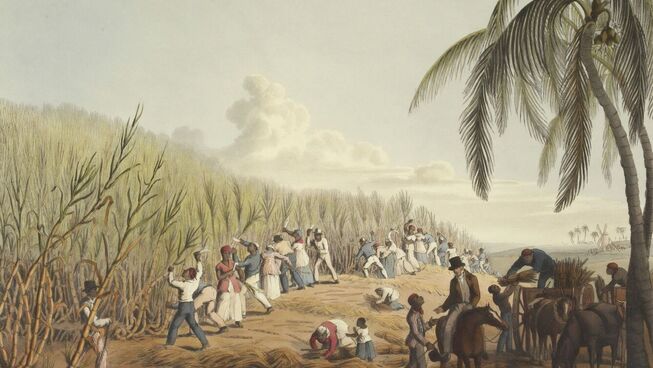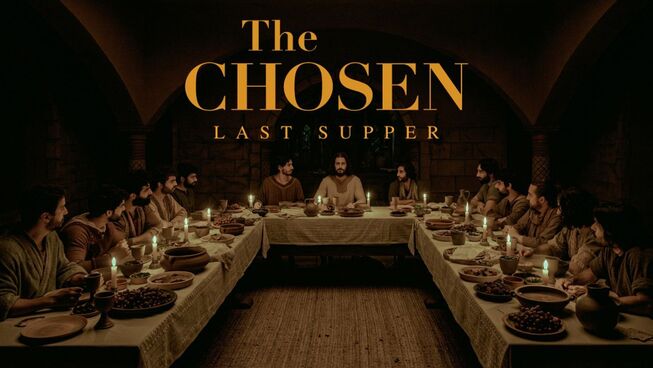Does the Bible condone slavery?

The Bible has been thrust into the limelight this week with comments made by Prime Minister Kevin Rudd on the ABC TV Q&A show. The comments came responding to a question from a Queensland pastor concerning same sex marriage and Rudd’s belief in the Bible.
Rudd responded with this,
Well, mate, if I was going to have that view, the Bible also says that slavery is a natural condition. Because St Paul said in the New Testament, “Slaves be obedient to your masters.” And, therefore, we should have all fought for the Confederacy in the US war.
Rudd suggests that the Bible condones slavery as ‘natural’.
This has stimulated a number of responses including offerings from Sandy Grant and new Archbishop of Sydney Glenn Davies.
These articles present a nuanced and accurate description of the Bible’s teaching on slavery.
Yet, last night I was particularly interested to see a review on PolitiFact which attempted to address the question Is Rudd right about the Bible's position on slavery?
I was impressed with their attempts at inviting intelligent response (they didn’t engage a straw man). Yet I was a little concerned by their conclusion that Rudd’s position was ‘mostly true’.
Part of their conclusion claimed:
The Bible's failure to condemn slavery is not an endorsement of slavery, but that's also not Rudd's claim. While the Bible doesn't literally say slavery is "natural", it doesn't do much to dissuade readers from the idea. The experts say it's a fact of life within the biblical texts. There's no six-point plan to stop slavery.
PolitiFact wisely stated that clarification and additional information were needed. This post has been written to give further clarification and information because this conclusion as it stands is misleading (and wrong).
The Bible acknowledges slavery as part of the social fabric of the time but it never suggests that slavery is a ‘natural condition’. Aristotle and Plato in line with the thinking of their time suggested that slavery was clearly natural and obvious on the basis of reason. Aristotle wrote
“But is there any one thus intended by nature to be a slave, and for whom such a condition is expedient and right, or rather is not all slavery a violation of nature?”
and again
“There is no difficulty in answering this question, on grounds both of reason and of fact. For that some should rule and others be ruled is a thing not only necessary, but expedient; from the hour of their birth, some are marked out for subjection, others for rule.”
To Aristotle slavery was ‘natural’. Yet the Biblical view is very different.
The trajectory of the Christian message is freedom. A clear illustration of this is the narrative of the Exodus and God’s people moving from slavery to freedom. The Bible never asserts that a person is ‘naturally’ a slave. People can change status and serve Christ because their identity is ‘in Christ’ and not in their social status or position. Hence, Paul in Philemon 16 speaks positively about a man, Onesimus, being removed from slavery and in 1 Corinthians 7:21 Paul says that being free is to be preferred to slavery.
Moreover, the Bible makes it very clear that all people are equal and valuable. All people are made in the image of God and a believer can equally serve Christ as a slave or free person (Gal 3:28).
It is clear that the Bible doesn’t view slavery as natural. Yet as PolitiFact points out, it never condemns it - there is no six-point plan for its eradication.
Does this omission therefore render the Bible guilty of condoning slavery?
To adequately deal with the conclusion of PolitiFacts two further questions need to be addressed:
1. Should we expect the Bible to outline a ‘six-point plan’ to stop slavery?
The short answer to this is ‘no’. To expect this misunderstands the purpose of the Biblical writings.
The Bible is not primarily a manifesto for social revolution (which is what it would be if any Ancient writer wrote a six point plan to end slavery). The Bible is a record of God’s dealings in the world and an exhortation for people to follow Jesus (God’s primary revelation to us) and his teachings. Whilst the writers of the New Testament presented a new social vision for God’s people, a person could faithfully live as a Christian within the existing social structures - hence instructions to slaves and masters. The Bible doesn’t outline any specific plans to directly restructure society, which incidentally is very different to Islam.
The original writers of the New Testament were generally poor, marginalised and insignificant. They would never have the ability or influence to instigate a massive social change that the wholesale abandonment of slavery would entail.
Yet as more people adopted the Christian message and it grew, Christianity almost unwittingly changed the very social fabric of the world. As more people accepted the Christian paradigm and saw its attractiveness, opportunities for greater social transformation increased. So much so that the Christian message would ultimately become the dominant social force in Western culture.
So whilst the Bible wasn’t written primarily as a manifesto for social revolution - the seeds of revolution are there. And once the movement grew to a critical mass, those seeds could germinate.
And this brings us to the second and crucially important clarifying question.
2. Why do we consider slavery wrong today?
Slavery was a nearly universal feature of every human culture in history. Yet the rejection of slavery is a distinctly Christian innovation.
Renowned writer and sociologist Rodney Stark in For the Glory of God wrote, ‘Just as science arose only once, so, too, did effective moral opposition to slavery. Christian theology was essential to both’.
Why was this? Why did moral opposition to slavery only arise as a result of Christian theology?
Essentially it comes down to the nature of humanity. The Bible claims that all people are equal. This was the primary motivational force of leading 18th Century abolitionist William Wilberforce who viewed all people as ‘made in the image of God’. This can also be seen in Paul’s commands to masters in in Ephesians 6. Whilst Kevin Rudd has correctly quoted verse 5 “Slaves be obedient to your masters.” , he has neglected the radical command of verse 9 to masters, “Do not threaten them, since you know that he who is both their master and yours is in heaven, and there is no favouritism with him.”
God treats ALL equally. This is fundamentally opposed to Aristotle’s view that slavery is ‘natural’.
The seeds of slavery’s overthrow are here. When Christianity grew and gained greater social influence it could denounce slavery as ‘wrong’. Christian opposition to slavery was clear from early times. Early Church Father Lactantius said, ‘In God’s eyes, no slaves’. Augustine saw slavery as the product of sin and contrary to God’s divine plan.
The primary reason today we accept that slavery is wrong and not ‘natural’ is because we have been influenced by a profoundly Christian view of the world.
The Bible may not outline a six point plan to overthrow slavery but it plants the seeds of its demise by affirming that absolute equality and dignity of all people - slave or free. This was something that no other ideology ever did and explains why we today consider slavery immoral.
Photo by British Library on Unsplash






